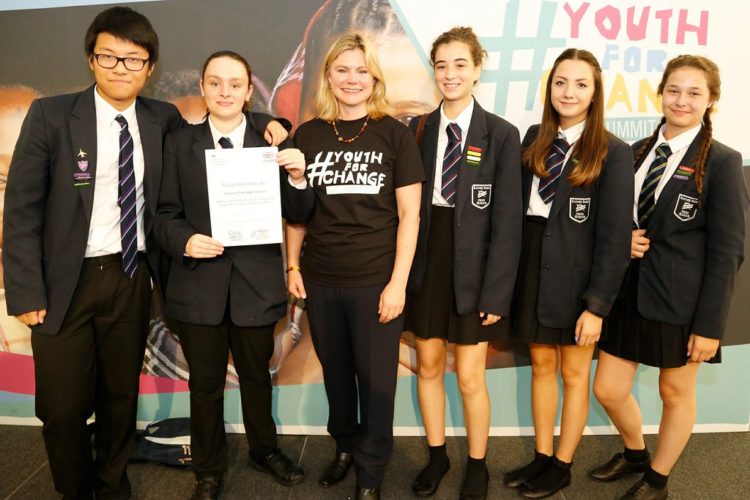By Gavin Mackintosh-
The idea of selecting popular children to be recruited as anti-drug ‘influencers’ as a new Government funded project has a obvious flaws in it.
Being popular in school does not automatically equate having high moral standards that extends to not doing drugs. It all depends why a particular student is popular, which could be anything from being fashionable, good looking, being from a rich family, including doing drugs themselves. The idea that just because a student is popular means they do not do drugs is very mistaken.
Under the new plans by the government, students in the top 17.5 per cent of nominations as the most influential in school will be asked to become peer supporters. of the scheme . The British Government is introducing a scheme that will see students in the top 17.5 per cent of nominations as the most influential in school to be asked to become peer supporters .
Under the scheme, which is a collaborative effort by academic experts that includes research over a number of years, the most popular children in school are to be recruited as anti-drug “influencers” in a Government funded project. The government plans to train teenagers voted by their classmates as the most influential to discourage their peers from taking illegal substances.This plan is good initiative, but has detectable flaws that need to be addressed.
SHORTCOMINGS
Firstly, the scheme will need to include ascertaining that the popular kids themselves are not on drugs. can only work if the students agree to be drug tested to confirm they do not take drugs, otherwise it is a plan riddled with obvious shortcomings. Those voting can also be told to include their knowledge of whether the popular kids they are selecting are on drugs too. Popular kids participating in the scheme will need to be drug free themselves at the point of their involvement. They will also need to be influential and of strong character.
Also, those who take drugs are often part of communities that do drugs. How the government is going to match the popular child to the drug takers is important. It is vital to also ensure that the popular kids selected are not vulnerable who could be easily led. How well the scheme will implement and co-ordinate the idea between the two groups that include the popular kids and the kids being targeted is important.
In the absence of a thoroughly examined approach. The British government may be clawing at straws in this praise worthy effort which may be superficial in its practical outcomes.The kids on drugs may be known to social service and be hardened kids known to social services who have been dealt with by youth offending teams.
The “Frank Friends” scheme, which is funded by the Government-backed National Institute for Health Research is set to be run across 48 schools in the West of England and South Wales from September and will involve 5,600 Year 9 students aged 13 to 14. The elected students will undergo two days of training before having conversations about the potential harms of drug use with their peers over a 10-week period. Without a credible plan to examine the true suitability of elected pupils, the strategy will be no more than camouflage with no real substance to it.
INQUIRY
Researchers scheduled to conduct the three-year study had no answer to our inquiry when it was presented to them. is said to be the UK’s biggest trial of a school-based drug prevention programme, will be run by researchers from Cardiff University.
Dr James White, of the Centre for Trials Research at Cardiff University, said: “There is limited evidence that drug prevention interventions are effective.”Schools provide a systematic and efficient way of reaching a large number of people every year. This randomised controlled trial is the best way to determine if the Frank Friends intervention prevents drug use among young people.
“The latest UK data indicate that 37 per cent of 15-year-olds have tried an illicit drug and more than 13,000 11 to 18-year-olds accessed drug treatment in the UK.Last week a study found that thousands of teenagers are risking their health by using powerful illicit prescription drugs to boost their performance in their G.C.S.E exams.
Dr. James White has been presented by our concerns which he appreciates and will consider. He will respond to us in full after he has given it full consideration.

